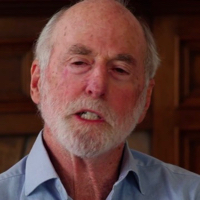
YouTube
Dr. Lee Coleman
July 7, 2019
For those seeking to understand the Little Rascals Day Care case one particularly intriguing question remains: How do the former child-witnesses, now well into their 30s, look back at their central role?
Do they believe today that their testimony was accurate? Or have they come to realize that those bizarre sexual accusations – as well as the accounts of sharks, spaceships and burning babies – were products of sheer fantasy? And that they had been relentlessly manipulated by the prosecution’s therapists?
Last month I sent letters to the Little Rascals witnesses in hopes that they would be ready to talk about their experiences. Here’s what I said:
“I apologize if this letter is unwelcome. For the past eight years I have been researching the Little Rascals Day Care case. I’m writing you because as a child you were a witness for the prosecution in Bob Kelly’s trial in 1991-92. The court records include a passage describing your testimony.
“I blog at littlerascalsdaycarecase.org, and I have worked with Duke Law School to build an archive on the case. My aim is to persuade the State of North Carolina to issue the Edenton Seven a statement of innocence similar to the one given the defendants in the Duke lacrosse case.
“I don’t know how you look back at your involvement in the case, and you are certainly under no obligation to tell me. But if you might be willing to share your recollections – however they might agree or conflict with your testimony – please contact me….”
In the decades since the “satanic ritual abuse” day care prosecutions few child-witnesses have chosen to step forward. One who did so – anonymously – looked back with sadness at the McMartin case: “It is my belief, after years of treatment centers and therapy, that nothing physical happened to me…. Mentally, well, that’s a different story. How about paying attention to the kids that were scarred from this therapy? Do you think that just because there was most likely no physical abuse that we didn’t still suffer?”
After receiving no responses to my letter, I asked Lee Coleman what he would advise those still-silent Little Rascals child-witnesses. Dr. Coleman, a Berkeley, Calif., psychiatrist, has testified in some 800 child sex-abuse cases, of which perhaps 100 involved day-care or preschool allegations. In this YouTube presentation he analyzes the McMartin Preschool case.
He replied to my request with this open letter (condensed) to the Little Rascals child-witnesses:
